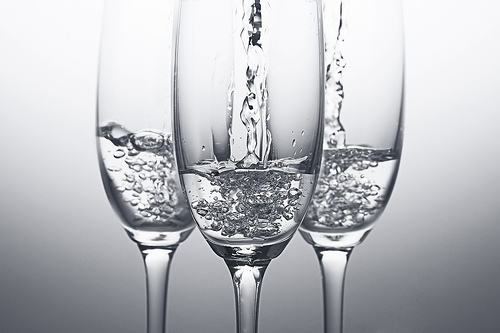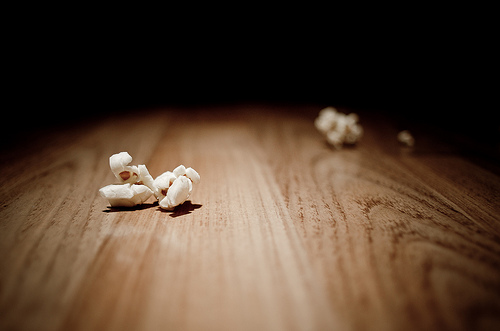We’ve all heard our mothers or grandmothers report to us how we should never do such and such or you should do this and that because “they say it’s not good” or “they say it’s beneficial”. But who exactly is “They” and where did “They” come up with that idea?
I’ve often wondered how these myths have still made their way around town without any second guessing or anyone researching the facts when the internet is full of information at everyone’s fingertips.
Below are a few of these common myths that still seem to be around even though they are untrue:
Drink 8 glasses of water each day

Ok, so this one has SOME truth to it, however, it is all in perspective on where the water is coming from. We consume a lot of liquids. The key here is healthy liquid intake for hydration. It isn’t necessarily saying that we need to chug eight glasses of water in addition to the liquids we are already consuming throughout the day. Also, it is not glasses, but cups. A cup is 8 ounces. The typical drinking glass is not 8 ounces, so we need to keep that in mind as well. The term LIQUID is sometimes unclear to folks. Liquids include:
- Ice Cream (not so healthy but still considered a liquid)
- Soup
- Jello
- Juice
- Coffee
- Milk
- Ice cubes/chips
- etc.
Don’t get me wrong, water is ultimately the best source of liquid and we should be aiming for healthy liquids. But the average person consumes a lot of other liquids as well so this should be counted in your running total for the day. Soda is not healthy (diet or not); sports drinks have a lot of sugar; sparkling flavored water has a lot of sugar not to mention the adverse effects of carbonation… But these all count toward the “8 cups of LIQUID per day.”
There is actually a medical diagnosis called Fluid Volume Overload (too much water in the body) which is caused by electrolyte imbalances that can result in serious problems including heart attacks, kidney failure and respiratory failure.
Have you ever heard the saying “too much of a good thing?”
Well that is not a myth.
5 Second Rule

The popular Discovery Channel program “MythBusters” actually did a segment on this thought. Their finding was “Even if something spends a mere millisecond on the floor, it attracts bacteria. How dirty it gets depends on the food’s moisture, surface geometry and floor condition – not time.”
Enough said.
The Flu

People tend to use the word FLU as the name for numerous illnesses. The flu is actually only associated with one illness: Influenza. This is the illness that we are all encouraged to obtain vaccines for each year. Symptoms of “The Flu” include:
- fever, chills, muscle aches, cough, congestion, runny nose, headaches, and fatigue.
So basically a really bad cold.
Symptoms do NOT typically include:
- diarrhea, cramps, nausea, vomiting
If these are the symptoms you do have, it is not the flu, but an intestinal infection or inflammation usually caused by something you ate.
Harmful Microwave Radiation

When I was pregnant with my daughter, I was strictly told that I was not to stand near a running microwave for too long otherwise it would effect the baby. Not from my doctor, by the way. I thought, well gee, wouldn’t my doctor warn me of this very common appliance that could potentially disfigure my child? Or worse yet, cause a miscarriage or mental retardation?
No, he didn’t tell me any of this because there is no reason to have concern.
There are different types of radiation. Some cause health issues with very small quantities of exposure while others it would take years of constant exposure to have any reaction what so ever.
The Microwave being the latter.
Microwaves are somewhat new to our society so they haven’t yet had time to be thoroughly tested and studied, but as of right now there are no studies showing that Microwave radiation has any negative effect on humans.
Using Antibacterials

There are so many products that contain antibacterials. Hand soap, hand sanitizers, body wash/soap, cleaning supplies,…we wash our dishes in it. We even spray it all around our house and on every door knob. We are all told that everything needs to be disinfected. But actually, our bodies have GOOD bacteria in it that naturally protects us from the BAD bacteria. When you use antibacterials you are killing both.
While it is important to keep your hands clean as well as the kitchen and the bathroom, for obvious reasons, the use of antibacterials isn’t always necessary. A good soap and warm water wash is usually all you need. You should only need to use antibacterial hand sanitizers when soap and water washes are not immediately available to you.
Frequent use of antibacterials can also cause immunity to common antibiotic medication. That means when you really need antibiotics for something, it’s not going to work. When it doesn’t work, you will need more expensive, harsh, IV antibiotics that require hospitalization for administration.
Yes, of course, if you find yourself in a situation you just grabbed a shopping cart with a questionable moisture on the handle- by all means. Use an antibacterial.
Great article I really like the 8 glasses of water a day one it seems like it could never be done. But if I count all liquids I AM getting eight glasses a day!
LikeLike
Thanks! ☺
LikeLike